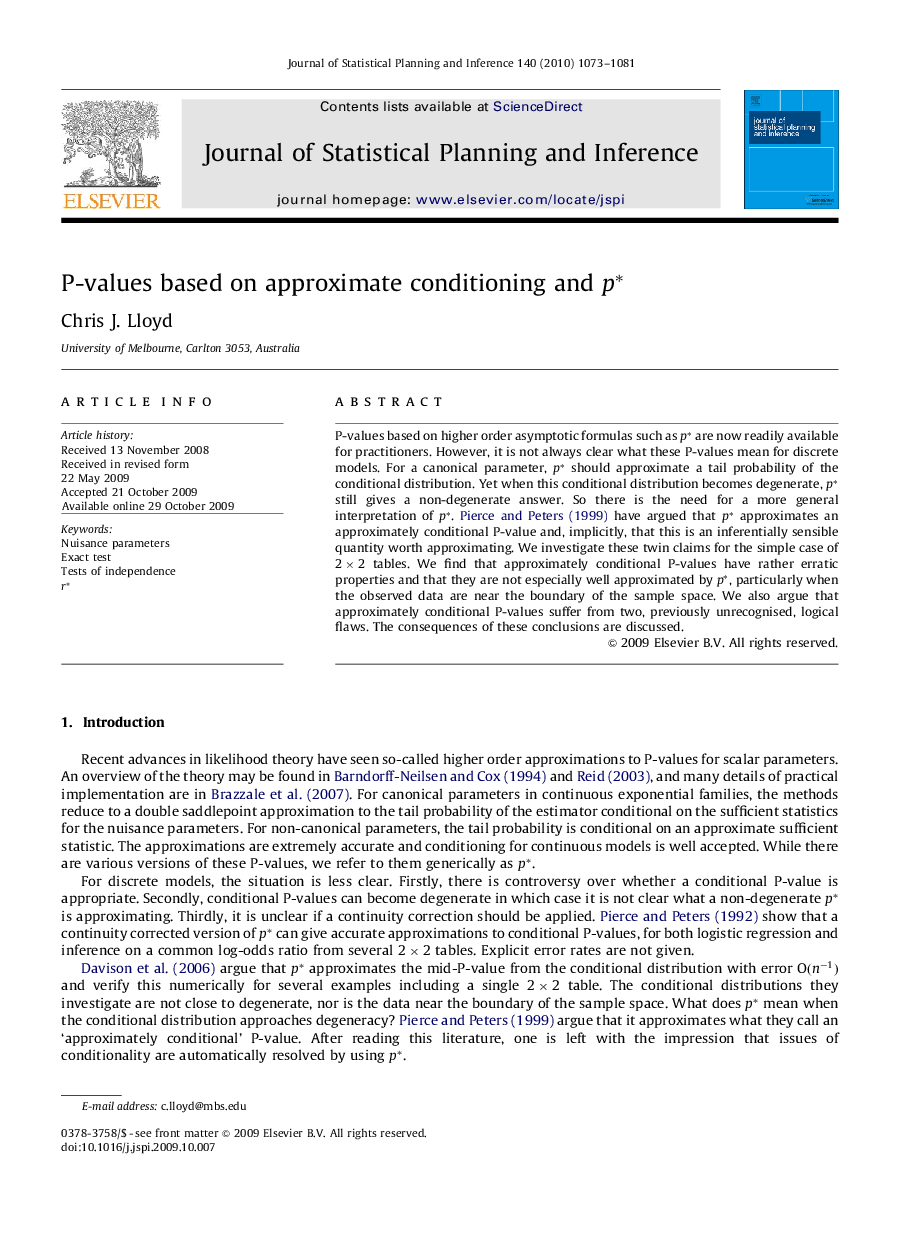| Article ID | Journal | Published Year | Pages | File Type |
|---|---|---|---|---|
| 1149323 | Journal of Statistical Planning and Inference | 2010 | 9 Pages |
Abstract
P-values based on higher order asymptotic formulas such as p* are now readily available for practitioners. However, it is not always clear what these P-values mean for discrete models. For a canonical parameter, p* should approximate a tail probability of the conditional distribution. Yet when this conditional distribution becomes degenerate, p* still gives a non-degenerate answer. So there is the need for a more general interpretation of p*. Pierce and Peters (1999) have argued that p* approximates an approximately conditional P-value and, implicitly, that this is an inferentially sensible quantity worth approximating. We investigate these twin claims for the simple case of 2Ã2 tables. We find that approximately conditional P-values have rather erratic properties and that they are not especially well approximated by p*, particularly when the observed data are near the boundary of the sample space. We also argue that approximately conditional P-values suffer from two, previously unrecognised, logical flaws. The consequences of these conclusions are discussed.
Keywords
Related Topics
Physical Sciences and Engineering
Mathematics
Applied Mathematics
Authors
Chris J. Lloyd,
